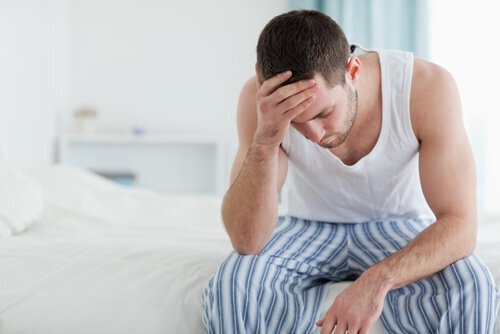
Sleep deprivation taking toll on workers’ productivity, appearance
Among those of us who work for a living – which includes just about everyone – Americans are running on precious little sleep time, and are feeling the adverse aftereffects in more ways than one, according to the results of a recent poll about sleep deprivation.
Nearly 60 percent of full-time employees say they're not getting enough time in bed to rest and recover, a CareerBuilder survey from earlier this year showed. Perhaps more alarmingly, roughly the same percentage – 62 percent – say their lack of sleep has affected their quality of life, particularly as it relates to their productivity on the job.
For example, 27 percent indicated their sleeplessness made them feel less motivated, 24 percent referenced being less productive and 13 percent admitted that it took them longer to finish various tasks as another consequence.
Rosemary Haefner, chief human resources officer at the Chicago-based job search engine website, warned that people are burning the candles at both ends, and something has to give.
"Rest is an undervalued necessity these days," Haefner explained. "We see more and more workers check into the office at all hours of the day, give up vacation time and work even when they're sick. Yet it's not necessarily making us more productive, and companies are starting to recognize that."
Health problems from sleep deprivation are legion
While the short-term effects of sleeplessness are well-established- several of them aforementioned – lesser known are the long-term complications. For example, sleep experts warn that failure to sleep the prescribed seven to eight hours per night can put people at greater risk for type 2 diabetes, obesity, hypertension, even Alzheimer's disease, which affects the brain and memorization capabilities.
Sleep deprivation can also adversely impact our physical appearance, evidenced by drooping eyelids, bags under the eyes, pale skin and more wrinkles, according to several studies, including one published in the medical journal Sleep. In short, they don't call it "beauty rest" for nothing.
Another consequence of insufficient shuteye is what it can do to hair follicles, specifically among men. When the body is at rest, sleep advances the production of testosterone, a key hormone that affects muscle repair and hair growth. If adrenal glands don't produce sufficient amounts, the body suffers the consequences in physical attributes. Because sleep plays a role on stress, added anxiety can exacerbate hair loss, especially for those with a family history of alopecia and stress-related shedding.
Hit the hay at the same time every night
Health experts have long recommended that people make quality time in the sack more of a priority. For those who have trouble sleeping, try going to bed and getting up at right around the same time every night and morning, as the body thrives on routine. Additionally, doctors advise creating an atmosphere that is conducive to sleeping, like darkening the room so light doesn't shine through and keeping the interior temperature slightly cooler than normal.
The National Sleep Foundation has several other excellent suggestions on how to get more Z's.
By the time the proper corrections are implemented to get more rest – usually behavior related – some of the aftereffects of sleep deprivation may be irreversible. The same can't be said for hair loss, not when you have the experts at our Long Island hair restoration clinic only a phone call away. Plus, a hair restoration procedure can have a synergistic effect on sleep quality, because the added self-confidence you'll feel can reduce stress, helping you to sleep more soundly. Discuss options like hair transplants or hair growth therapies if thinning has increased.
Experience the numerous ways in which your life can change for the better by scheduling an appointment. You have nothing to lose and everything to gain.